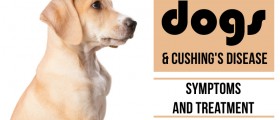
If you have a dog then it has probably swallowed a foreign object more than once, which was probably followed by vomiting. You don’t have to be surprised if your dog vomits from time to time, but if he starts to vomit more times during a week, then you should be alarmed. Symptoms such as diarrhea, lethargy and changes in dog’s routine should also alarm you. Vomiting in dogs can be divided in two main categories, acute and chronic; acute, which shouldn’t be taken very seriously, as it is a consequence of eating some foreign object, and chronic, which is more serious and could mean that some kind of a disease is present. It may be caused by some inflammation or irritated intestinal system.
Those beautiful creatures always surprise us with some new swallowed objects, be it a coin, a tennis ball, a toy. This can lead to blockage in the intestinal system when the dog is unable to expel it out, and a problem, which is usually followed by diarrhea and lethargy, appears. If there is a partial blockage, a dog may try to throw it up, but if there is a complete blockage, then it may lead to an infection. Under such circumstances, the best thing would be to take the dog to a vet, who will examine the dog and conduct an ultrasound. Large breeds of dogs often develop gastric dilation-volvulus, a serious condition that causes serious problems. These dogs eat large meals and a lot of food packs their stomach, so if there is too much activity after the meal, it may lead to stomach twisting, as their body is unable to expel gas. Then they vomit, and, because of the shortage in stomach blood supply, cardiac arrhythmias can develop. Dogs who suffer from bloat, must immediately be taken to an emergency vet in order to stabilize their condition, while in some cases, a surgery will be necessary. The recovery of a dog is difficult and it depends on the severity of damage and post-operative infections.
Prevention
You can prevent bloating if you give your dog smaller meals and allow him time to rest after a meal, since in that way, chances for bloating are reduced. The procedure of treatment depends on the cause of vomiting. After the vet’s examination of a dog, he may undertake some measures in order to help a dog, or he may recommend fecal testing, blood work, X-rays; and if the condition is serious a hospitalization may be necessary. You must realize that dogs are like small children, they want to try everything, and they think that everything is eatable, which is why you always have to pay attention to what your dog is doing.















Your thoughts on this
Loading...